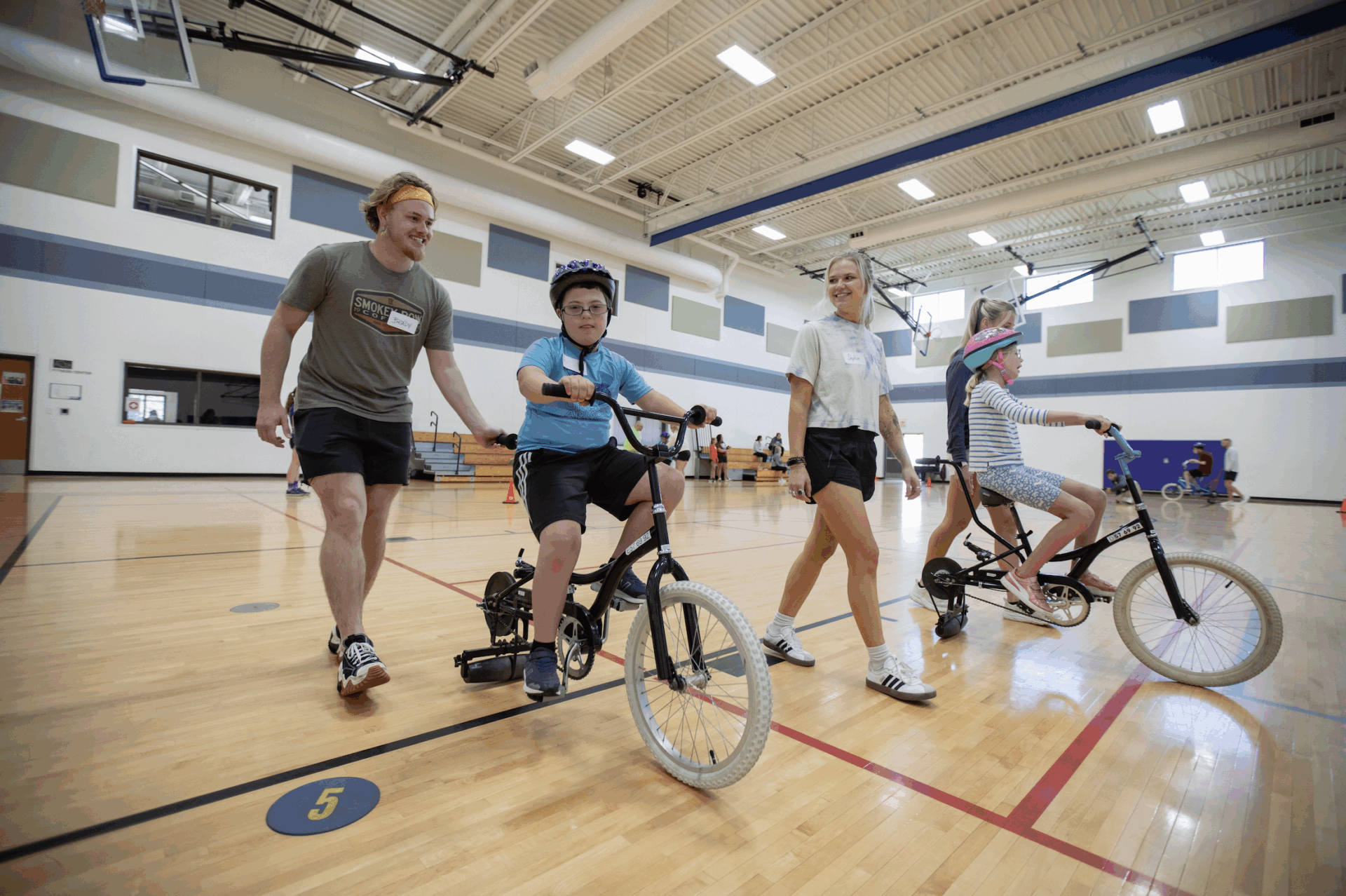Growing up, siblings play crucial roles in each others’ lives. Amidst the good times and hard times, siblings are essentially built-in best friends. Having a brother or sister is a lifelong journey.
That journey becomes a bit more intense when your sibling has a disability. There are unique hurdles that come with living in a household with an individual with special needs. This experience is more common than most people think. Among the 6 million people in the United States that have disabilities, most of them have at least one sibling. Let us explore the emotional impact, both positive and negative, of disability on siblings.
4 Common Struggles for Siblings of Individuals with Disabilities
- Anxiety: When a child shares a household with an individual who may exhibit frequent behavioral issues, it can be disruptive to their sense of peace or security. These siblings are likely to experience nervousness or anxiety in response to the stress that occurs in their home.
- Resentment: It’s natural for children to feel frustrated when their sibling gets more attention than them. When a child with special needs becomes the center of the parents’ attention, their sibling may develop feelings of resentment.
- Isolation: Without a proper support system, siblings of individuals with disabilities can feel very alone. They may even feel isolated from their peers or neglected by their parents.
- Pressure: Some siblings feel pressured to achieve in academics or sports to gain attention from their parents. They also may feel pressured to act like ‘assistant parents’ and be a constant support system for their sibling.
5 Benefits of Having a Sibling with a Disability
- Compassion: Growing up beside a brother or sister with a disability allows one to learn patience and understanding from a very young age. The compassion they hold for their sibling carries into their day to day life.
- Independence: Oftentimes, when a child gets less attention, help, or resources from their parents due to their sibling having a disability, they learn to be more responsible on their own. Children who don’t rely on their parents learn to trust their own strengths, intuition, and resilience.
- Leadership: A sibling of a child with special needs often takes on more responsibilities than their peers. When attempting to be a good role model for their sibling, there tends to be a lot of opportunities to exercise leadership skills—an extremely valuable asset in life.
- Maturity: Siblings serve as advocates for their brother or sister. Many members of society have preconceived notions of people with disabilities, and their siblings can be the voice that stands up for them. Advocating for and protecting the misunderstood takes a lot of maturity.
- Patience: Living with siblings takes a lot of patience for everyone. When your sibling has a disability, it can be even more difficult to navigate proper communication skills when issues arise. Kids who grow up with a sibling with special needs learn that patience is a virtue.
The Emotional Impact
Having a sibling with a disability is truly a lifelong emotional journey. Like every family relationship, there are many ups and downs. But at the end of the day, these unique struggles are what teach siblings valuable life lessons. Harriet Redman, founder of WisconSibs, states, “99% of the siblings of individuals with disabilities I talk to would say that they wouldn’t be the person they are without their sibling.”
With that being said, siblings who do not have disabilities also need support. In order to cope with the common struggles such as anxiety or resentment, connecting with other siblings who share the same concerns can be very beneficial. Support groups allow them to relate to one another, confide in each other, and grow with confidence in themselves to set a positive example for their sibling.
Most importantly, family members must all participate in open communication. Special needs families experience great obstacles, extensive planning, and no shortage of stress on an everyday basis. There’s nothing more valuable than having the entire family on the same page. When times are tough, communication is key!
Covey Cares: Round-the-clock Respite for Your Sibling
Located in the Greater Fox Valley of Wisconsin, Covey is a nonprofit organization devoted to creating opportunities that foster personal growth for adults with intellectual and developmental disabilities. Through respite care, customized skill-building, and community engagement programs, Covey is a special place where participants, their families, and the community learn to uplift and empower one another.
A large part of being a sibling to someone with a disability is serving as a caregiver. Caring for a loved one is more than a full-time job; it’s your entire life. Through Covey’s Respite Care Services, families are given the opportunity to relax, recharge, and renew their ability to nurture.
Each Covey participant receives customized care, because we pride ourselves on understanding the interests, comfort levels, and goals of each participant. You and your family are your sibling’s strongest support system. Let Covey be yours.
For more information, visit covey.org.

